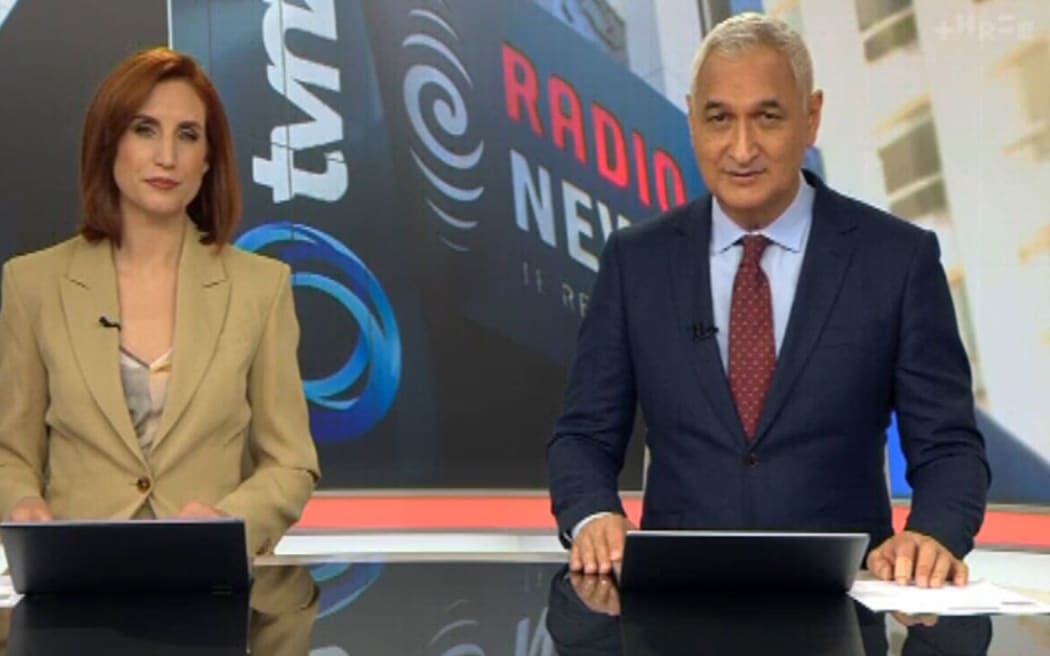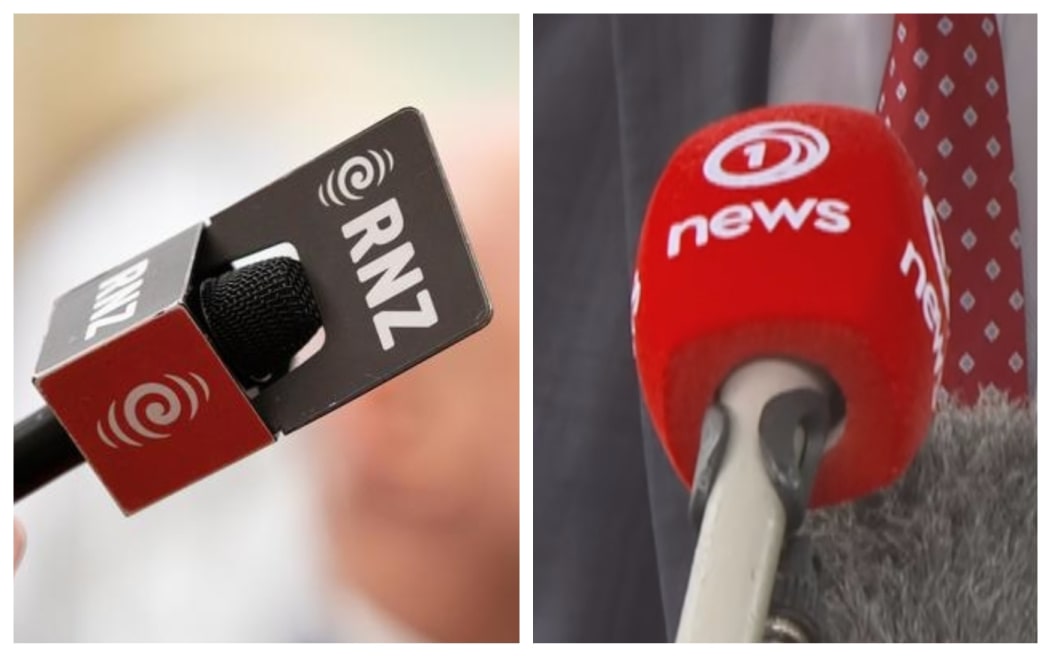Legislation for a new public media entity due by March has been reviewed and is due to be debated in Parliament soon. But pundits and opposition politicians alike are urging the government - now under new 'bread and butter' management - to pull the plug on it.

Newshub at 6 last Thursday said the public media merger hearings heard the plan is "riddled with problems." Photo: Screenshot / Newshub at 6
When the legislation for the new public media entity - the Aotearoa New Zealand Public Media Bill - first appeared last year, it didn’t get the reception the Broadcasting Minister wanted.
“The guarantee of editorial independence is less than watertight,” said Gavin Ellis, former editor of the New Zealand Herald.
“Too much of the bill leaves out those things that are in the ‘too-hard basket’. There is nothing about that relationship between its commercial and non-commercial operations beyond preserving what RNZ does now,” Dr Ellis - an affiliate of Koi Tū, the Center for Informed Futures at the University of Auckland - told Mediawatch at the time.
Broadcasting minister Willie Jackson insisted people would have “opportunity plus” to have a say - but there was less than a fortnight for submissions to Parliament’s Economic Development, Science and Innovation committee.
Almost 1000 people and institutions submitted in writing and in person at a series of subsequent hearings.
This week the Committee reported back. proposing ministers be prohibited from interfering in content or advertising, the gathering or presentation of news or current affairs content.
“We consider it inappropriate for a Minister to be able to add functions to a public media entity,” the EDSI committee report stated.
It said requiring ANZPM to counter what it determines to be “misinformation” might also affect its ability to provide impartial and balanced current affairs content and “erode public faith in ANZPM.”
“The whole Bill continues to be more about the merging of two existing organisations than the creation of an organisation fit for purpose in the digital age.” said Koi Tū’s director Sir Peter Gluckman.

Photo: RNZ / TVNZ
Koi Tū’s response to the Committee report said the Bill was still “unfit for purpose” even after the proposed changes.
The Better Public Media Trust welcomed measures to reinforce political independence.
“However, it falls short of the original proposal in the business case for the new entity structure to be specifically designated as not-for-profit,” said spokesperson Dr Peter Thompson.
“This revision still doesn’t do enough to clarify the operational balance between public charter and commercial objectives. This is especially important in regard to news and current affairs if the TVNZ and RNZ newsrooms are integrated,” he said.
Veteran political journalist Richard Harman - a former political editor at TVNZ - called the report “a comprehensive demolition” of the Bill.
“The changes beg the question as to the quality of the consultation process and advisory committee work that led to the original draft, which was prepared by the Ministry for Culture and Heritage,” he wrote on his news website Politik.
“The only appropriate course of action is to cease this bill in its tracks and to allow RNZ and TVNZ to continue in their present form,” National Party MPs on the Committee told the report.
Pundits and politicians predict the policy's demise
New PM Chris Hipkins said last week the government must now focus on “bread and butter” issues and the cost of living.
Hipkins has not yet said if a new public media entity is ‘bread and butter’ or not - but pundits and political reporters seem almost unanimous that it isn’t.
“Expect him to clear the decks of electoral liabilities, fast. Three Waters will be off the table. Likely also, speed limit reductions and the TVNZ/RNZ merger, “ former Labour leader David Cunliffe wrote in the New Zealand Herald.
Earlier this month Jana Rangooni - chair of the commercial radio broadcasters umbrella group - called the new entity a ‘monopolistic, monolithic monster’ that would be bad for the country.
But just before Christmas, market research commissioned by Better Public Media showed more New Zealanders support the merged RNZ/TVNZ merger than oppose it.
It found 44 percent of 1000 people surveyed said they supported an entity funded with $109m a year to provide a wider range of content and services. Only 29 percent said they didn't - and a quarter didn't know.
"With a little more information about the merger, including the cost and the purpose for it, New Zealanders are more supportive of this policy,” Better Public Media chair Myles Thomas concluded.
National Party leader Chistopher Luxon isn't one of them. He has pledged to “de-merge” RNZ and TVNZ if the government goes ahead with it, claiming merger will cost billions of dollars in the coming decades.
Before Christmas, Luxon told Morning Report RNZ should better funded in future instead.
In mid January, Luxon described the merger as “ideological and insane” and “a solution looking for a problem” in an interview with NBR’s political editor Brent Edwards. He was unmoved by the Edwards pointing out other comparable countries already have public broadcasters operating on radio and TV an online which are not regarded as ideological or politically compromised.
This week National’s broadcasting spokesperson Melissa Lee also said her party would reverse the merger, claiming the bill for it over 30 years would be more than $6 billion.
The National Party seems wedded to the status quo - retaining a state-owned commercial brodacaster that dominates free-to-air television but makes the state no money.
Under the status quo, the annual current state spending on public media is well over $300m a year in all its forms. The bill for that will be around $10 billion by 2050, without any guarantee of anything close to the more comprehensive services other comparable countries get for their public media spending.
Media policy is usually at the very bottom of the policy priorities for political parties in election year. This year - ironically - pundits and opposition parties are putting it at the top of the list to be dumped at the very point a real change has actually become possible.

